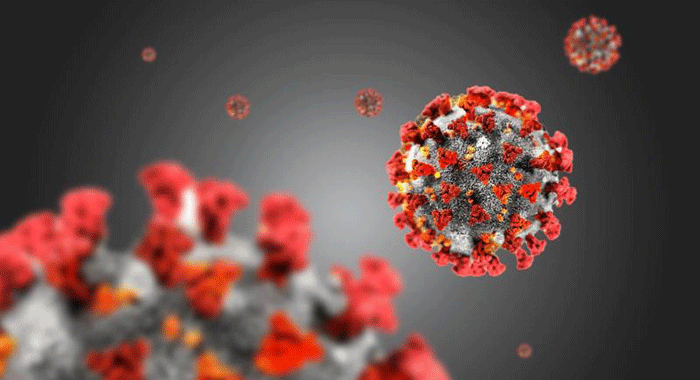The person whose COVID-19 infection resulted in the local spread of the viral illness to five persons (Case #13 to Case #17) in St. Vincent and the Grenadines initially imported the illness.
Medical Officer of Health, Dr. Roger Duncan made the disclosure at a Ministry of Health Press conference on Thursday, one day after he said on VC3 that the source of the infection was an asymptomatic person.
At Thursday’s press conference, Duncan was asked if the person had a recent travel history and if all of the five other cases were contracted directly from that asymptomatic carrier of the virus.
Duncan said:
“Firstly, that person did have a recent travel history. And secondly, everybody in that group, we could relate to the index case — so either the index case directly affected one or two persons and those persons went on to infect other persons. That’s why we’re calling it a local transmission. So in each case, we’re able to trace the infection from a particular source that we know.”
In his Wednesday interview on VC3, Duncan discussed “local spread”, “community spread” and “cluster” in the context of the COVID-19 pandemic, saying that to the public, their response, rather than the meaning of the terms, is what is most important.
He said the terms have created “quite a stir, it seems”.
He said that when the ministry talks about local spread, “we’re simply saying that there’s someone who has COVID-19, who came into the country COVID-19, and they had given it to somebody in the country.
“So this person has it now, has not travelled anywhere and we know for sure this is where they got it from.”
Community spread has occurred when health officials cannot find the source of the infection.
“Somebody has it; you have no clue where it came from,” Duncan said.
He said that a cluster means that there is a group of people around an imported case who are COVID-19 positive.
Duncan continued:
“But I tell my friends that the important thing is not to talk about local spread or community spread and if it’s this or if it’s that because the advice for you, the public, remains the same.
“Distance yourself; wash your hands; respiratory hygiene, if you’re sick, don’t go to work; call ahead before you come in [to see the doctor]. It remains the same — local or community spread.”
He said that the difference between the terms is important to public health officials because their action would differ accordingly.
“Local spread, we have one type of reaction to that community spread and we’ll probably have to employ other measures,” Duncan said.
He further stated:
“So for you the public, please don’t let people scare you, with this local and community spread and community spread we are all going to die; we all going to get it — it’s gone; it mash up the place.
“Don’t bother with that. You do what you’re supposed to do. Do everything we’ve been asking you to do before: wash your hands, distance yourself, good respiratory etiquette; if you’re sick, stay home, do that with the work or school; If you’re ill, please call your doctor before you you turn up to office or your clinic — before you go.
“And that is the key message. So I mean, local community and I mean … for us in public health is just to establish that we could relate each case of COVID-19 to another case, a source of infection,” Duncan said.
Duncan was speaking on a programme on which Chief Medical Officer, Dr. Simone Keizer was the other guest.
On April 21, when Case #13 was announced, Keizer-Beache issued a press release addressing the issue of local transmission and community spread.
Community spread, Keizer-Beache had noted, refers to instances where several people in a community test positive for COVID-19 without any known contact with an imported case.
Citing Caribbean Public Health Agency (CARPHA) definitions, she further said that “local spread” or a “secondary case” describes a situation where the person was never abroad, but was exposed to an imported case, so that the source of the infection can be identified.







Why the continuing over-emphasis on cases being “imported”? It now makes no difference. No one ever thought that those cases bubbled up from the volcano. We know it started with importation and will be sustained by importation. Once it is here it does not have to get a visa to keep going. So what is the point of the repeating this? Unless it is to make room for the Government to stop the July carnival because if the carnival is held, there would be hell to pay afterwards: Our imported Covid-19 friends would not want to leave until they have shown us how to: cough and dance, cough and dance.
The carnival must be closed down now. I am getting calls from Vincentians overseas asking what is the carnival status. Not that these people want to come for the carnival. A few have said to me that they normally take vacation in July but will stay away if the carnival is the same time.
Regardless, it needs to be cancelled for this year and likely also next year.